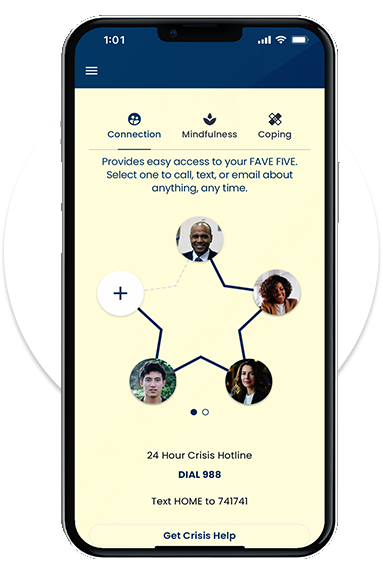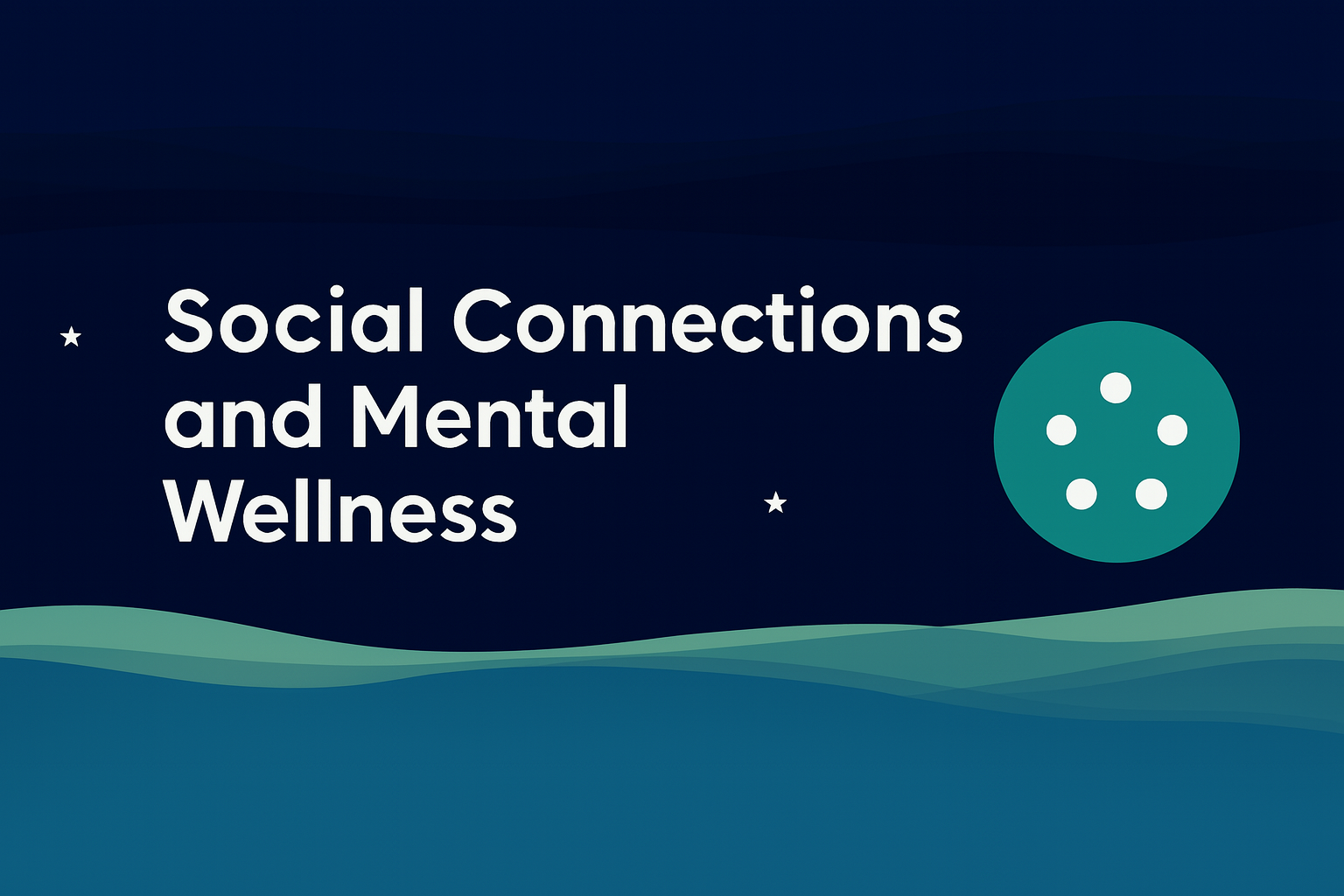The Importance of Social Connections for Mental Health
Improved Mental Health
Social connections significantly boost mental health by providing emotional support, reducing stress, and increasing feelings of belonging and purpose. Studies have shown that individuals with strong social support are less likely to suffer from mental health disorders such as anxiety and depression.
Enhanced Quality of Life
Strong social networks contribute to a higher quality of life. They provide a sense of identity and help individuals navigate complex environments. A study indicated that a lack of social connection is a greater determinant of health than obesity, smoking, and high blood pressure.
Longevity and Physical Health
Social connections not only impact mental health but also physical well-being. Research has demonstrated that individuals with stronger social relationships have a 50% increased likelihood of survival, regardless of age, sex, initial health status, and cause of death. Socially connected individuals also show better health outcomes, such as lower blood pressure and improved immune function.
Reduced Risk of Suicide
Social connections can play a protective role against suicidal thoughts and behaviors. The Centers for Disease Control and Prevention (CDC) define connectedness as the degree to which a person or group is socially close, interrelated, or shares resources with others. Higher levels of connectedness are associated with a decreased risk of suicide.
Stress Reduction
Social interactions help in managing stress. Positive interactions with friends, family, and colleagues can provide emotional support, practical help, and different perspectives, all of which contribute to stress reduction and improved mental health.
Developmental Milestones
Throughout life, social connections are integral to achieving developmental milestones. From childhood through old age, human-to-human interaction supports mental health and well-being by helping individuals develop and maintain relationships.
Protection Against Depression and Anxiety
Longitudinal studies have shown that social connectedness protects against depressive symptoms and disorders. Feeling lonely or having a small social network size at baseline is related to adverse outcomes, including higher risks of major depressive disorder and generalized anxiety disorder.

Why is Resilience Important for Mental Health?
Protective Effect Against Mental Health Problems
Higher levels of resilience are consistently associated with fewer mental health problems in children, adolescents, and adults. Resilience can help protect against serious mental health conditions like depression and anxiety.
Improved Coping and Adaptation
Resilience enables people to better manage everyday stressors and challenges. It helps individuals bounce back and adapt after experiencing adversity or trauma.
Better Long-Term Outcomes
Resilience is associated with better academic performance, behavior, and greater life opportunities, including employment and satisfying relationships.
Enhanced Stress Management
Children and young people with greater resilience are better able to manage stress, which supports their mental health now and in the future.
Promotes Optimism and Hope
Feeling optimistic and hopeful are key aspects of resilience that contribute to positive mental health and well-being.
Multifaceted Benefits
Resilience is related to multiple protective factors like social support, coping strategies, and self-esteem that all contribute to better mental health.
Dynamic Relationship
There appears to be a bidirectional relationship where resilience predicts better mental health in the short term, and better mental health promotes resilience over time.
Significant Predictor
In studies of older adults, resilience significantly predicted mental health outcomes and explained a substantial portion of the variance in mental health.

How to Build Healthy Social Connections
Understanding the Importance of Connection
Human beings are inherently social creatures wired for connection and belonging. Research consistently shows that social relationships are crucial for promoting mental health and emotional well-being. Healthy relationships provide support, validation, and a sense of purpose, which are essential for psychological flourishing.
Engaging in Shared Activities
Participating in shared activities can help build strong connections. This could include joining clubs, groups, or classes that interest you. Engaging in activities with others fosters companionship and creates opportunities for meaningful interactions.
Practicing Active Listening
Effective communication is key to building healthy relationships. Practice active listening by paying full attention to the speaker, asking clarifying questions, and reflecting back what you’ve heard. This shows respect and helps build trust and understanding.
Offering and Seeking Emotional Support
Healthy connections involve both giving and receiving support. Be there for others in times of need, and don’t hesitate to seek help when you need it. Emotional support can significantly reduce stress and enhance resilience.
Cultivating a Sense of Belonging
Fostering a sense of belonging within your social circles and community is vital. Participate in community activities, volunteer, or join interest groups to strengthen your social ties and contribute to a more connected society.
Maintaining a Positive Relationship with Yourself
The relationship you have with yourself is foundational. Practice self-care, positive thinking, and self-compassion. A healthy self-relationship enhances your ability to build and maintain positive relationships with others.
Setting Boundaries
Healthy relationships require clear boundaries. Know your limits and communicate them effectively. This helps prevent burnout and ensures that relationships remain supportive and respectful.
Being Open to New Connections
If your current social network does not provide enough support, take steps to form new connections. This can involve reaching out to new people, attending social events, or even seeking professional help if shyness or anxiety is a barrier.
Using Technology Wisely
While face-to-face interactions are ideal, technology can also facilitate social connections. Use social media and other digital platforms to stay connected with friends and family, especially when physical meetings are not possible.
Joining Support Groups

Practical Ways to Build Meaningful Relationships
If you are facing specific challenges, joining a support group can provide additional help. Support groups offer a space to share experiences, receive practical advice, and feel less alone in your struggles.
Making Time for Relationships
Schedule regular face-to-face meetings, whether it’s a coffee date, walk, or meal together. Prioritize in-person interactions over digital ones.
Practicing Active Listening
Pay full attention, ask questions, and show genuine interest in what others are saying. This demonstrates that you value the person and the conversation.
Being Authentic and Vulnerable
Share your true self, including fears, dreams, and challenges when appropriate. This builds trust and intimacy.
Asking Open-Ended Questions
Encourage others to share more about themselves by asking questions that can’t be answered with just “yes” or “no.”
Putting Away Digital Devices
When interacting with others, give them your full attention by putting away phones and other distractions.
Engaging in Shared Activities
Participate in hobbies, sports, book clubs, or volunteer work together. Shared experiences help build stronger bonds.
Being Selfless and Loving
Focus on giving and supporting others rather than just trying to get something from the relationship.
Increasing Closeness Gradually
Spend more time together and gradually increase the depth and intensity of your interactions.
Celebrating Each Other’s Successes
Show genuine happiness for others’ achievements and milestones.
Being Consistent and Reliable
Follow through on commitments and be there for others consistently to build trust.
Practicing Empathy
Try to understand others’ perspectives and feelings, even if they differ from your own.
Expressing Gratitude
Regularly show appreciation for the people in your life and the things they do.
Being Patient
Meaningful relationships take time to develop. Don’t rush the process or force connections.

Incorporating Kindness into Your Daily Routine
Compliment Others
A genuine compliment can brighten someone’s day and make them feel valued. Acknowledging someone’s efforts or appearance fosters positivity and connection.
Offer a Helping Hand
Small acts of assistance, like helping a coworker with a project or holding the door open for someone, can make a significant difference in someone’s day.
Be a Good Listener
Take the time to listen actively to someone. This shows that you care about their feelings and experiences, which can alleviate stress for them.
Send Care Packages
A thoughtful care package with snacks or personal items can show someone you are thinking of them, especially during tough times.
Check In Regularly
Reach out to friends and family with a simple text or call to let them know you care. This can strengthen relationships and provide emotional support.
Smile and Greet Strangers
A warm smile and a friendly greeting can create a positive atmosphere and make others feel acknowledged.
Express Gratitude
Saying “thank you” sincerely can enhance relationships and show appreciation for others’ efforts.
Leave Notes of Encouragement
A small note with a positive message can uplift someone’s spirits and remind them that they are cared for.
Practice Empathy
Show understanding and compassion towards others’ struggles by putting yourself in their shoes, which can foster deeper connections.
Volunteer Your Time
Helping out at local shelters or community organizations not only benefits others but also enriches your own life through meaningful engagement.
Share Treats
Bringing snacks or treats to share with coworkers or neighbors can create a sense of community and foster goodwill.
Be Mindful of Others’ Time
Being punctual and respectful of others’ schedules demonstrates consideration and kindness.
Recap of Key Points
Social connections are fundamental to mental health and overall well-being. They provide emotional support, reduce stress, enhance quality of life, and protect against mental health disorders. Building and maintaining strong social networks is essential for both mental and physical health, emphasizing the importance of fostering social connections throughout life.
Encouragement
Encourage individuals to take proactive steps to build and maintain healthy social connections. Emphasize the benefits of having a diverse and supportive social network and the positive impact it can have on mental wellness.
Final Thoughts on the Impact of Social Connections on Personal Growth and Mental Well-Being
The time is now! Empower your mental and emotional wellness journey by taking meaningful steps towards building relationships and fostering a supportive community.

Mindfulness & Connection For All
Additional Resources
Further Reading
Books, articles, and websites on resilience and the 7 Cs.
- The Connection Prescription: Using the Power of Social Interactions and the Deep Desire for Connectedness to Empower Health and Wellness
- Significance of Social Connectedness to Mental Health
- Social connectedness as a determinant of mental health: A scoping review
Back to Resources…
